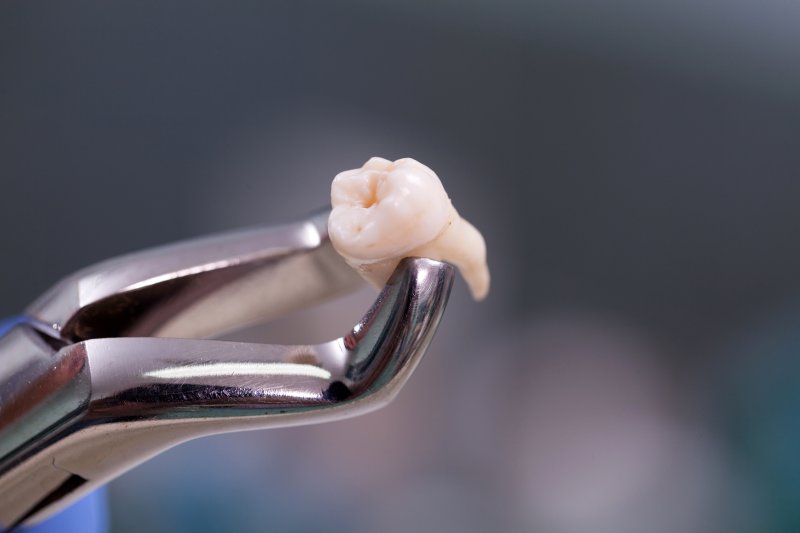
When exploring options for treatments for your teeth, the last thing your dentist wants to do is resort to a tooth extraction. This procedure will completely and permanently remove a tooth from your mouth, leaving a gap that would need to be replaced with one of several prosthetic options.
However, there are many reasons this treatment might be necessary. As unfortunate as it may sound, sometimes the best option for your continued oral health is extraction. Continue reading to learn more about the circumstances that may lead to one or more extracted teeth.
1. Impaction
Impaction happens when your teeth don’t form and grow correctly, leaving a tooth stuck partially or completely within your gums. This condition is most often caused by your wisdom teeth, a set of third molars that generally form between 17 and 25 years of age.
When a tooth becomes impacted, it can press against your other teeth causing pain, swelling, and ultimately damage to other teeth next to it. In the case of impaction, especially with wisdom teeth, extraction is the best option for relief.
2. Tooth Decay
When bacterial plaque builds up around your teeth, it becomes acidic, eating away at the enamel of your pearly whites until it forms small holes. If left untreated, these holes continue to grow, eventually rotting the entire tooth.
Severe tooth decay caused by poor oral hygiene can cause complications, especially when it reaches the pulp at the center of a tooth.
A root canal procedure may be used to treat a tooth at this stage, but extraction could be the only alternative if the damage is too severe.
3. Crowded Mouth
When your adult teeth eventually replace your first set, they may grow in unevenly. Wisdom teeth will only exacerbate this problem, causing your teeth to shift to make room.
This movement in your teeth can cause problems with your bite, damage your teeth, or cause pain over time. Extraction of one or more teeth can solve these problems, allowing the remaining teeth to spread out to fill the space naturally.
4. Gum (Periodontal) Disease
Your gums can also react poorly to the presence of bacteria in your mouth, especially if plaque is left on your teeth due to a lack of brushing or flossing. Over time, food particles form the sticky plaque on the surface of your teeth, producing gum-irritating bacteria.
In some cases where the irritation leads to infection, your teeth may feel loose as the gums become inflamed, and the bone surrounding them begins to lose its structure. In this case, extraction can provide an opportunity for replacement via a prosthetic.
5. Trauma
It is not always poor dental hygiene or unfortunate tooth growth that leads to extraction. Accidents happen all the time due to slips, trips, or collisions. This can break teeth, causing extreme pain and possible damage to the soft tissues of your mouth.
Extracting teeth that cannot be saved with other techniques will provide relief from pain and allow the affected areas of your mouth to begin the healing process.
It’s important to understand the reasons behind tooth extraction to maintain your oral health. Whether it is due to severe decay, overcrowding, or other issues, your dentist can guide you through the process and explore suitable replacement options if necessary.
About the Author
Dr. Mo Saleh has dedicated his career to providing the best care that dentistry has to offer. With advanced training in full-mouth rehabilitations, Dr. Saleh is prepared to restore the function and comfort of your teeth. Dr. Saleh is also a proud member of several professional organizations including the Ohio Dental Association and Greater Cleveland Dental Society. To schedule an appointment at Brecksville Dental Excellence or learn about the restorative services offered, visit the website here or call (440) 546-9494.
